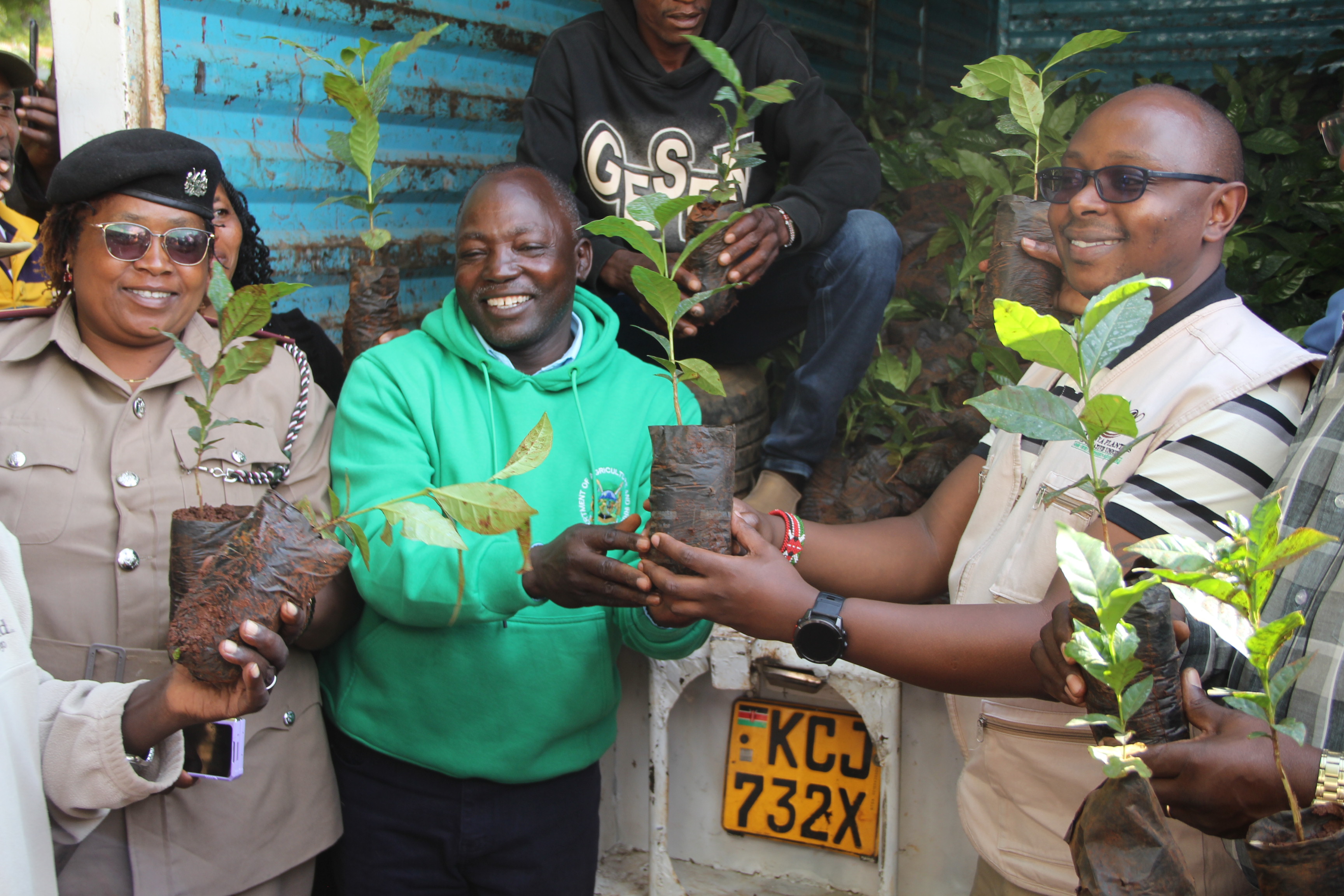

Laikipia county, traditionally known for livestock rearing, is largely a dry region. However, this is changing as farmers venture into the cultivation of highly-priced coffee.
Amidst the scorching sun, coffee bushes blossom on Peter Kimani’s farm in Tandare village within Kinamba ward.
Kimani, who has dedicated one and a quarter-acre of land to coffee farming, reveals he started in 2022 and, after making his first sale from the crop, has never looked back.
“Maize has been our cash crop for many years but now it has been replaced by coffee due to the good returns. With an acre of maize crop making a net profit of Sh30,000 annually and the same piece of land planted with coffee earns Sh240,000, coffee is the best option,” the budding farmer said.
He added that sales have increased tremendously and he recently pocketed Sh320,000.
With unpredictable weather patterns in the county and coffee farming requiring an altitude of between 1000m and 2000m to grow well, Kimani, who has nearly a thousand Batian variety coffee bushes, said they rely on shallow rains and dams for farming.
The secretary of Ng’arua Coffee Farmers’ cooperative society explained they use portable machines to remove the red husk, then wash and dry the coffee for market.
“Since we do not have a processing factory it’s upon the farmers to do their pulping and dry then we sell the produce as members of the society aimed to get good returns,” notes Kimani.
A kilo of parchment fetches Sh330 while dried coffee sells for Sh200 at the New Kenya Planters Cooperative Union (NKPCU).
He points out that they discourage members from selling to brokers, aiming for farmers to benefit from the cooperative society through advance pay and training. The middlemen, from Nyeri, Kirinyaga and Nairobi counties, have been frequenting the area.
Kimani is among hundreds of farmers across the six wards—Sossian, Githiga, Marmanet, Igwamiti, Ol Moran and Ngobit—who have embraced top-rated coffee farming to improve their economic fortunes.
The county government has been at the forefront of sensitising farmers to venture into coffee farming, distributing seedlings in these six wards.
“Our target in the next four years is to fetch sh10 billion from coffee farming and many families will be out of poverty through this venture. With an acreage of land under coffee, every family take home will be a million shillings,” Laikipia Governor Joshua Irungu said.
Coffee farming will create job opportunities for the youth and, at the same time, there is a ready market for the produce, he said.
Irungu pointed out that promoting coffee farming would help eradicate perennial conflicts between farmers and herders who graze their farms illegally during dry seasons since coffee bushes are not edible by livestock.
The state is keen on boosting coffee production and earnings. Since 1970, the country has been on the world map, earning billions of dollars in foreign currency from coffee production, whose farming has been dominant in central Kenya.
But with a decline in production and earnings, Cooperatives CS Wycliffe Oparanya, during a visit to Laikipia, said the government was employing a three-year plan to increase acreage under coffee.
Some of the interventions include giving out coffee seedlings to farmers, training and marketing.
NKPCU managing director, Timothy Mirugi, said Kenya produces 49 tonnes of coffee annually.
During a drive to distribute 20,000 coffee seedlings to farmers in Kinamba, Mirugi said the government had an ambitious plan of attaining 200,000 tonnes by the year 2028.
This year alone, KPCU aims to give out 500,000 coffee seedlings to farmers in Laikipia. The county targets to grow 10 million coffee bushes by 2027.
Data from the county’s department of agriculture shows that the number of coffee farmers had increased from 398 to 1,117, with Batian and Ruiru 11 being the most common varieties grown.












